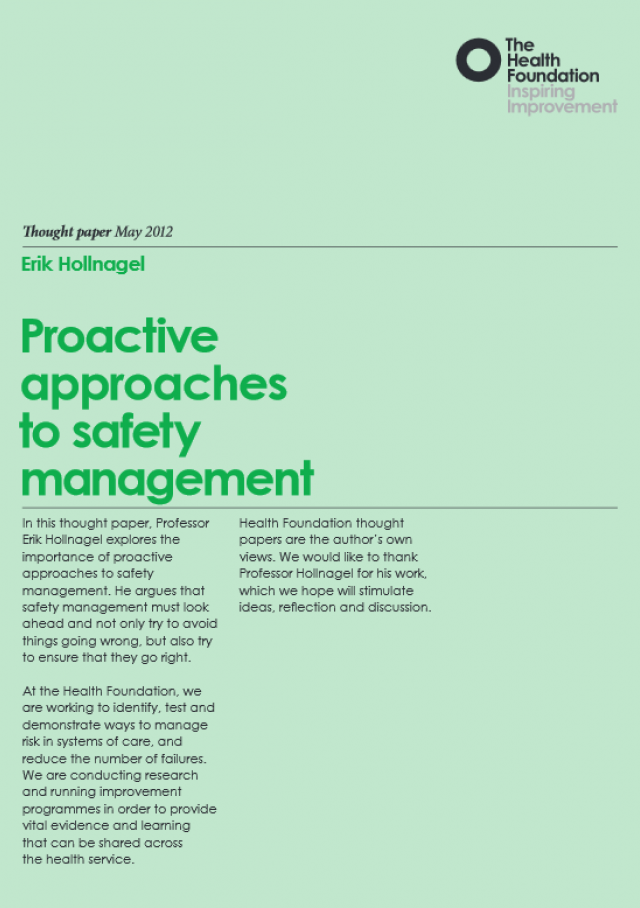Proactive approaches to safety management Thought paper
May 2012

Key points
- Reactive safety management focuses on things that go wrong or could go wrong, such as near misses, incidents, and accidents.
- This corresponds to a definition of Safety-I as situations where little or nothing goes wrong.
- Proactive safety management focuses on how to adjust performance so that risky situations do not occur.
- In order to achieve this, safety management must look ahead and not only try to avoid things going wrong, but also try to ensure that they go right.
- This corresponds to a definition of Safety-II as situations of everyday work where things go right. Safety-II can be achieved by facilitating the performance adjustments that are necessary for everyday work to succeed, hence by being proactive.
Professor Erik Hollnagel explores the importance of proactive approaches to safety management. He argues that safety management must look ahead and not only try to avoid things going wrong, but also try to ensure that they go right.
At the Health Foundation, we are working to identify, test and demonstrate ways to manage risk in systems of care, and reduce the number of failures. We are conducting research and running improvement programmes in order to provide vital evidence and learning that can be shared across the health service.
Health Foundation thought papers are the author’s own views. We would like to thank Professor Hollnagel for his work, which we hope will stimulate ideas, reflection and discussion.
Further reading
Work with us
We look for talented and passionate individuals as everyone at the Health Foundation has an important role to play.
View current vacanciesThe Q community
Q is an initiative connecting people with improvement expertise across the UK.
Find out more

